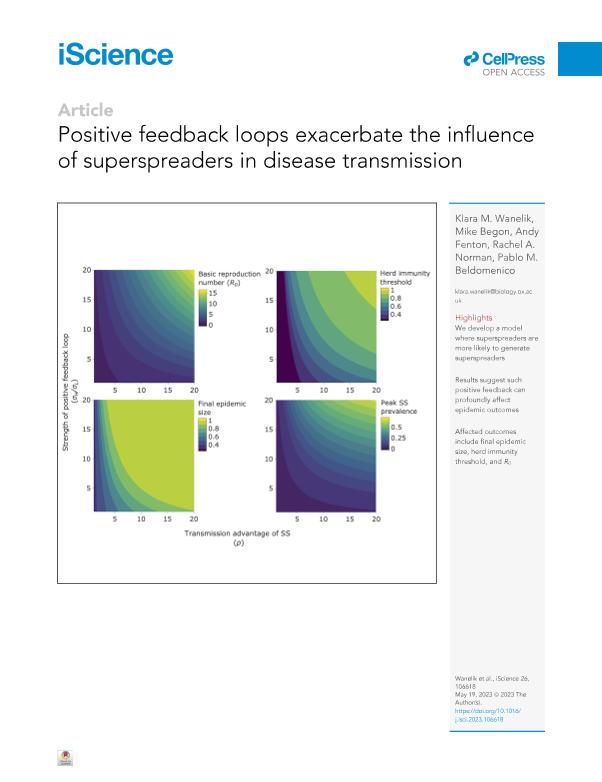Artículo
Positive feedback loops exacerbate the influence of superspreaders in disease transmission
Fecha de publicación:
05/2023
Editorial:
Elsevier
Revista:
iScience
e-ISSN:
2589-0042
Idioma:
Inglés
Tipo de recurso:
Artículo publicado
Clasificación temática:
Resumen
Superspreaders are recognized as being important drivers of disease spread. However, models to date have assumed random occurrence of superspreaders, irrespective of whom they were infected by. Evidence suggests though that those individuals infected by superspreaders may be more likely to become superspreaders themselves. Here, we begin to explore, theoretically, the effects of such a positive feedback loop on (1) the final epidemic size, (2) the herd immunity threshold, (3) the basic reproduction number, R0, and (4) the peak prevalence of superspreaders, using a generic model (for a hypothetical acute viral infection) and illustrative parameter values. We show that positive feedback loops can have a profound effect on our chosen epidemic outcomes, even when the transmission advantage of superspreaders is moderate, and despite peak prevalence of superspreaders remaining low. We argue that positive superspreader feedback loops in different infectious diseases, including SARS-CoV-2, should be investigated further, both theoretically and empirically.
Palabras clave:
HEALTH SCIENCES
,
MEDICINE
,
VIROLOGY
Archivos asociados
Licencia
Identificadores
Colecciones
Articulos(ICIVET-LITORAL)
Articulos de INST. DE CIENCIAS VETERINARIAS DEL LITORAL
Articulos de INST. DE CIENCIAS VETERINARIAS DEL LITORAL
Citación
Wanelik, Klara M.; Begon, Mike; Fenton, Andy; Norman, Rachel A.; Beldomenico, Pablo Martín; Positive feedback loops exacerbate the influence of superspreaders in disease transmission; Elsevier; iScience; 26; 5; 5-2023; 1-13
Compartir
Altmétricas




